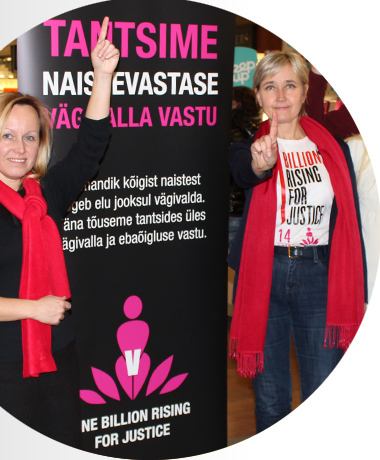Kõne: Parliamentary Cooperation And Neighbourhood Policy
Saturday, 14.06.2008, 12:30 / SEISUKOHAD / RSS
First Working Session: PARLIAMENTARY COOPERATION AND
NEIGHBOURHOOD POLICY
By Marianne MIKKO, Chairwoman of the Delegation to the EU-
Moldova Parliamentary Cooperation Committee
Dear Colleagues,
I feel honoured to chair the First Session of our Parliamentary
Conference. This gives me the opportunity to welcome all of you to the
European Parliament and to express my hope that the outcome of the
Conference will be satisfactory for all of us.
Should we have to find a common definition for all of us, the word
“Neighbours” springs to our minds. I think this is the appropriate
definition. We, as Neighbours, are involved in this never-ending project
of building a society in which fundamental human rights are respected, in
which the leaders of our countries are genuinely focusing on governing
societies which share the principle of democracy, stability and prosperity
for all.
Throughout the European history, geopolitics has influenced our lives and
the lives of our citizens. I can assure you that this will continue being the
case from now on. THEREFORE: let’s make the most of what history is
offering us at present: the unique opportunity to get along with each
other, to heal the wounds of the past – in some cases the wounds of the
recent past – and to start all over again on a much better basis and with
valid arguments.
The Berlin Wall divided us in several “groups” for so long! We all lived a
traumatic experience, and we do not want this to happen again. This is
why today the enlarged European Union is still searching for the most
adequate policy towards its Eastern Neighbours.
Despite some scepticism and criticism, and driven by the fear that – after
the 2004 enlargement – Europe was faced with an “unfamiliar problem”,
the EU came up with a first response to questions concerning present and
future relations with Armenia, Azerbaijan, Belarus, Georgia, Moldova
and Ukraine by adopting the European Neighbourhood Policy and its
Action Plans for each country. As it was defined from the very beginning,
the goal of the ENP is sharing common values of freedom, security,
stability and justice with neighbouring countries. Undoubtedly some
questions were raised about the eventual political, economic and social
costs and benefits of the ENP. Apart from a differentiated approach
towards our common project, the respective bilateral relations with
Russia can determine the value of these costs. I admit that the European
Union needs to be more visible in the region. Moreover, the
Europeanisation process should be less sophisticated and more accessible
to the large majority of the population in each country.
Now, dear colleagues, allow me to raise an issue that is – unfortunately –
very familiar and of great concern to all of us: the need to use all political
levers in order to work out the best way to solve the unresolved conflicts
in Abkhazia, South Ossetia, Transnistria and Nagorno-Karabakh. We
should no longer worry about how to manage these conflicts, but how to
resolve them! In my opinion, avoiding this subject would be in the
detriment of all countries concerned and of their neighbours and the EU
as a whole. THEREFORE: dialogue should be the golden rule accepted
by everyone. As parliamentarians, we should give a good example to our
governments in engaging in such dialogue. We should not loose sight of
the essence of our distinctive role in holding our governments to account
by making full use of our scrutiny power if we want to make headway in
finding viable solutions for a peaceful settlement of the conflicts.
Dear Colleagues,
All of you represent countries that are members of the Organisation of
the Black Sea Economic Cooperation. Presumably some of you have
attended various meetings organised by the Parliamentary Assembly of
the Black Sea Economic Cooperation and you have had the opportunity
to discuss this very important issue with your counterparts. You can now
take some time and analyse the outcome of those meetings, no matter its
substance. And then, let’s see together what is still at stake and where we
fail – again and again – to agree with each other.
I would conclude by conveying to all of you my most sincere hope that
this Conference will enhance the initial objective of the ENP: closer
political dialogue and reform, economic and social reform and
development, cooperation in the field of trade, justice, freedom and
security, protection of environment and above all developing people-to-
people contacts within the wider concept of the civil society.
And Colleagues, you can count on our support, as Chairs of the
respective Delegations, in targeting – with your valuable guidance – those
issues that will enable us to make great progress in strengthening
relations with you, our Neighbours.

